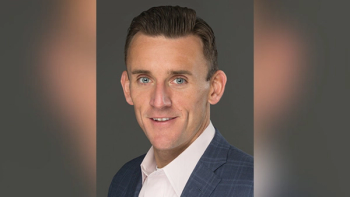
- Pharmaceutical Executive-01-01-2011
- Volume 0
- Issue 0
The Night Stalkers
"Tops in Fraud" is a ruinous moniker for pharma-a business so dependent on basic issues of trust, integrity, quality and safety
As noted in our cover story this month, the consensus is that 2011 will be a tough year for pharma. It must confront the biggest breaking wave of patent expirations, while fiscal retrenchment has created an innovation cycle in reverse, as payers find new ways to curb the drugs bill. Risk-averse regulators are transforming old tools such as the FDA "complete response letter" into a registration parking lot, with no exit ramp to connect companies to a distracted—and increasingly impatient—community of clinicians and consumers. Finally, stiff competition within therapeutic classes has created unheard of rivalries among companies that once were happy to share the same watering hole.
William Looney
So as the daylight recedes on January, let's inventory a few of what I call the "night stalkers"—issues that are likely to keep members of the C-suite awake beyond a sensible hour.
Corruption. Claims for malfeasances ranging from off-label promotion to deceptive pricing continue to mount, with more than $10 billion in compliance charges imposed on Big Pharma over the past five years. With a return on investment of more than 100 to one, in terms of what it costs to litigate, US and European regulators are pushing the extraterritorial reach of enforcement legislation to cover a potentially rich new vein of graft in emerging markets. The scope of action has quietly spread to include criminal charges against individual executives; eventually, a Big Pharma company will be barred from doing business with US government programs. "Tops in Fraud" is a ruinous moniker for pharma—a business so dependent on basic issues of trust, integrity, quality, and safety. When will the industry address the problem from an industry-wide reputational, as opposed to a strictly legal, standpoint?
Conflict-of-Interest Vigilantes. Governments, academia, activists, and the media—all skeptical of the profit motive as a driver of a built-in bias—are applying conflict-of-interest rules to marginalize its role in decisions on everything from publication of clinical trial results to participation in scientific panels that drive access to new medicines. This narrow view is a powerful force behind the industry's eroding reputation. Yet little has been done to confront and reverse the perception that since drug companies have that simple motive to market, their input on virtually every issue cannot be trusted.
Technology Transfer Mandates. Know-how and expertise are tangible assets for pharma, ones that should be allocated sparingly to partners who may one day be competitors. This dynamic is particularly evident in the emerging markets, where governments have materialized as formidable industrial policy negotiators in insisting that new innovations be shared with local partners as a condition for market access. When a drug multinational has to score a deal where it shares production with a local firm, transfers the necessary technology, and, after a fixed period hands over all remaining exclusive rights to the partner—as Merck recently did in Brazil—one has to ask: How truly different is this from a compulsory IP license that the industry has always characterized as theft?
The Margin Eaters. There is an emerging social contract that in many ways treats the industry as a quasi-public utility, with pressure to make costly commitments normally not expected of a private enterprise. These now include revenue and profit give-backs that conform to government fiscal targets or post-marketing surveillance activity (i.e. REMS) that require extensive funding of work extending beyond the normal product life cycle marked by expiration of the patent term. Risk-sharing contracts and expectations of "total health solution" approaches in an era of personalized medicine are examples as well. These may all be positive in the abstract, but the net effect will be still more pressure on the bottom line in 2011 and beyond.
William Looney
Editor-in-chief
Articles in this issue
about 15 years ago
Malta: A healthy location for the pharmaceutical industryabout 15 years ago
Politics & PDUFAabout 15 years ago
The Right Mix for 2011about 15 years ago
The List: 2011about 15 years ago
Malta: A Healthy Location for the Pharma IndustryNewsletter
Lead with insight with the Pharmaceutical Executive newsletter, featuring strategic analysis, leadership trends, and market intelligence for biopharma decision-makers.




